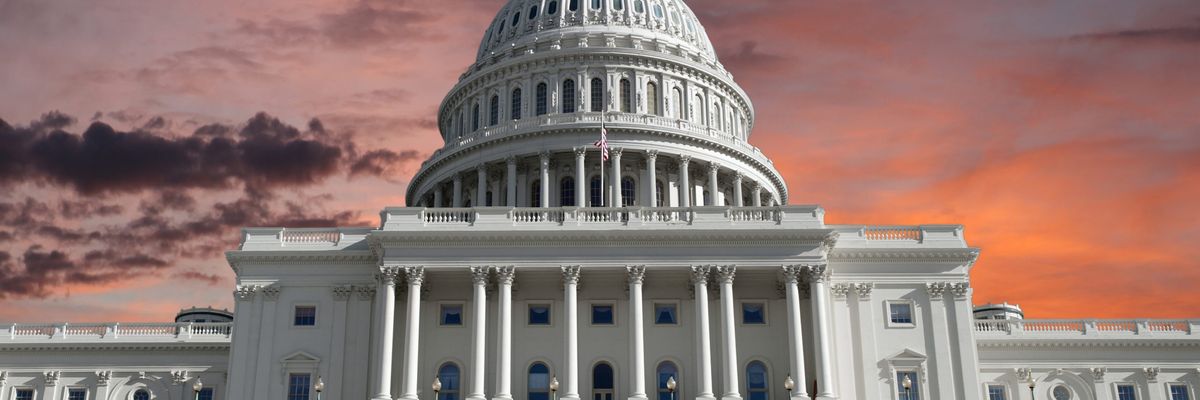Advocates for repealing the outdated, overused, and abused Authorization for the Use of Military Force in Iraq cleared another hurdle today as a bipartisan bill passed through the Senate Foreign Relations Committee.
Senators and aides speaking to the press this week seemed confident that a repeal may go all the way — either as part of the annual defense policy bill or as a combined stand-alone bill with the legislation already passed in the House. But it needs to get through the full Senate either way.
The measure also repeals the 1991 AUMF, which authorized the 1991 Persian Gulf War.
According to Andrew Desiderio at Politico, the bipartisan effort — the bill is co-sponsored by Sens. Tim Kaine (D) and Todd Young (R) — is nearing the 60 Senate votes it would need to achieve that, mostly because Republican holdouts are beginning to come on board. They are reading the tea leaves — that nearly 20 years after the AUMF was passed to invade Iraq, it has become a forever war totem at a time when Americans — both left and right — are weary with overseas interventions that the government can no longer clearly explain. Plus, Republican war hawks know that most interventions today are being supported by the 2001 AUMF (first passed to fight the Afghanistan war) or Article 2 executive powers anyway.
That doesn’t mean, of course, that there hasn’t been a vigorous debate about it. As Alexander Ward and Quint Forgey pointed out after yesterday’s Senate hearing on the repeal, plenty of hold-out Republicans are using the “soft on Iran” ploy to oppose it. They claim that the AUMF is still needed to rid Iraq of the Iran-backed militias reportedly plaguing the U.S.-Iraq military outposts in Iraq right now, or that repealing would make the U.S. look "weak."
“The repeal of the AUMF will be used as justification for continuing to go soft on Iran,” Sen. Ted Cruz (R-Texas) blasted during the hearing.
Democrats retorted by saying that repealing the authorities is a good faith showing to Iraqis who want to have a less wartime relationship with the United States. Biden recently announced a new strategic partnership with Baghdad in which Washington will deploy “advisers” rather than combat troops (numbering around 2,500) to help the military against militia violence and Islamic State residuals.
Regardless, traditional conservatives like Sen. Chuck Grassley (R-Iowa) are joining the usual GOP advocates for repeal, including Sen. Rand Paul (R-Ky.), this time around. It also has the support of the White House.
The question of course is whether moderates and hawks on both sides of the aisle will then fight to “replace” the AUMF with a more targeted measure and what that will look like. The next step is the repeal of the 2001 AUMF, which doesn’t have as much broad support in Congress. But first things first.
















